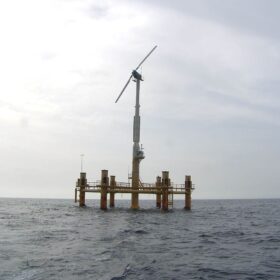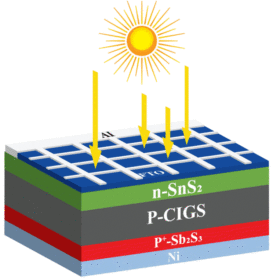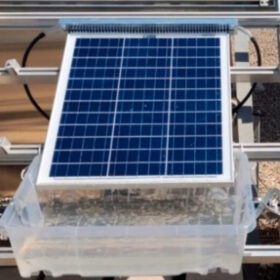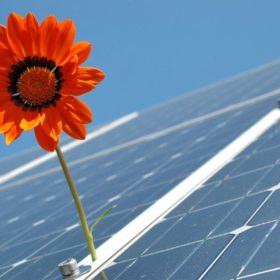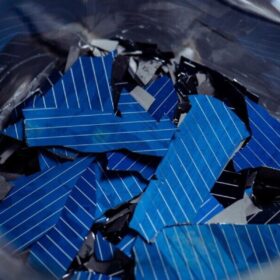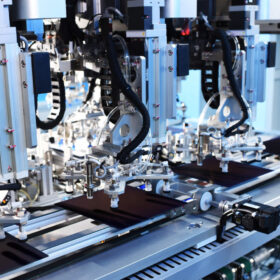Canada’s SPARQ Systems enters PV microinverters partnership with Jio
Canada-based microinverter company SPARQ Systems has entered into a partnership agreement with JioThings, a fully owned subsidiary of Jio Platforms Ltd. of Reliance Industries, to supply the Indian conglomerate with PV microinverters.
Subsea pumped hydro for utility scale storage at deepwater
Researchers in Norway have investigated the technical potential of implementing subsea pumped hydro storage at water depth not exceeding 2,000 m. They also identified potential locations for these storage systems based on energy density.
Lithos technology reduces water use in lithium extraction
Lithos applied for a $30 million DOE grant, which will help increase the facility’s capacity to sustainably process lithium hydroxide.
New CIGS solar cell design with antimony trisulfide promises 31.15% efficiency
The novel solar cell uses antimony trisulfide (Sb2S3) as the back surface field (BSF) layer. According to its creators, this layer can be included in conventional CIGS solar cells to improve their efficiency and reduce the absorber material’s cost.
Photovoltaics for wastewater disinfection
Researchers in Spain have developed a new system that simultaneously produces PV power and disinfects wastewater.
Agratas partners Tata Technologies to fast-track battery solutions for electric mobility, renewable energy storage
The collaboration with Tata Technologies will enable Agratas to accelerate product development, including the design and integration of battery cells into modules and packs for global customers in the mobility and energy sectors.
The scope for emerging solar cell technologies
In the fight against climate change, solar PV technology must increase its share in global electricity generation. This presents a mammoth challenge to the PV industry and research community. Intensive research efforts are necessary for developing various types of PV technologies parallel to Si-based solar panels.
Hyundai acquires stake in German PV recyling specialist Flaxres
Flaxres says it will leverage Hyundai’s capabilities to expand its business outside of Germany. The company has developed a solar module recycling technology that is based on short-term high-temperature heating using flash lamps.
The rise of back contact cell architecture
Sometimes, progress involves looking backwards. In this case, a return to back contact solar cell architecture has resulted in improved efficiencies and reductions in cost.
Evaluating the performance of mono- and poly-Si solar PV technologies in Eastern India
Researchers from the SRM Institute of Science and Technology, Ghaziabad, have studied the performance of monocrystalline silicon (mono-Si) and polycrystalline silicon (poly-Si) technologies in the tropical wet region of eastern India. The results showed that the yield outcome with mono-Si PV was around 12% higher and the losses around 32% lower than poly-Si PV.

